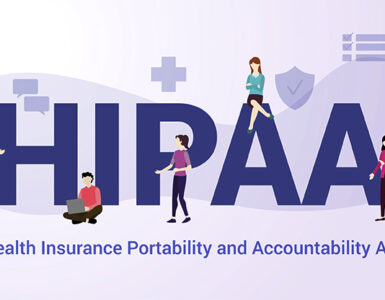Telemedicine is a branch of modern medicine in which patient health information is exchanged over a great distance, through a series of local and wireless networks. The remote settings of the patients, make the exchange of health information with health providers, highly vulnerable to hostile intrusion.
The HIPAA compliance norms makes it mandatory all the covered entities like hospitals, clinics, clearinghouses, physicians, medical insurance companies and other health service providers to employ secure computer network systems, which follow stringent security codes. Any failure in HIPAA compliance on part of health provider, will surely invite strict regulatory action, in form of heavy fines or criminal prosecution.
The nomadic or remote settings of the patients make it a challenging task for the health providers to maintain the privacy of patient health information. A series of wireless and local area networks make the system vulnerable to hackers. Further lack of proper vigilance at remote settings attracts hostile intrusion from both, hackers and virus. To fortify the Telemedicine network against unauthorized access, the health service providers should incorporate stringent security features in the network and they are:
- All the email communications should be in encrypted form. The email content is encrypted into strings of codes and transmitted over the network. At the receiving end, the coded message is assembled back into original form with help of a key. Even if someone manages to access it illegally during course of transmission, the coded message will make no sense to the hacker.
- Facial recognition system helps the service providers to clearly identify the patients on the network, especially in the case of video conferencing.
- Digital identity card is provided to the remote patients after identity verification by authorities. The encryption features and digital signature of the patients in the card authenticates the users and allows them access online health services.
- The access to all the point-of-service computers should be user authenticated, to ensure that only authorized personnel access the system.
- The computer network should be protected by firewall and should be constantly monitored to detect any intrusion. There should be an audit system, which maintains a record of time, frequency and nature of the hostile attacks made, on the network.
The security features in the network enable the health service providers to provide quality healthcare services to remote patients in a safe and secure way. The patient health privacy is protected and this is in line with HIPAA compliance norms. Telemedicine and EMR can safely deliver customized health solutions to remote communities.
Telemedicine is a boon for remote communities.
Read more on HIPAA compliance at, www.empowerbpo.com




